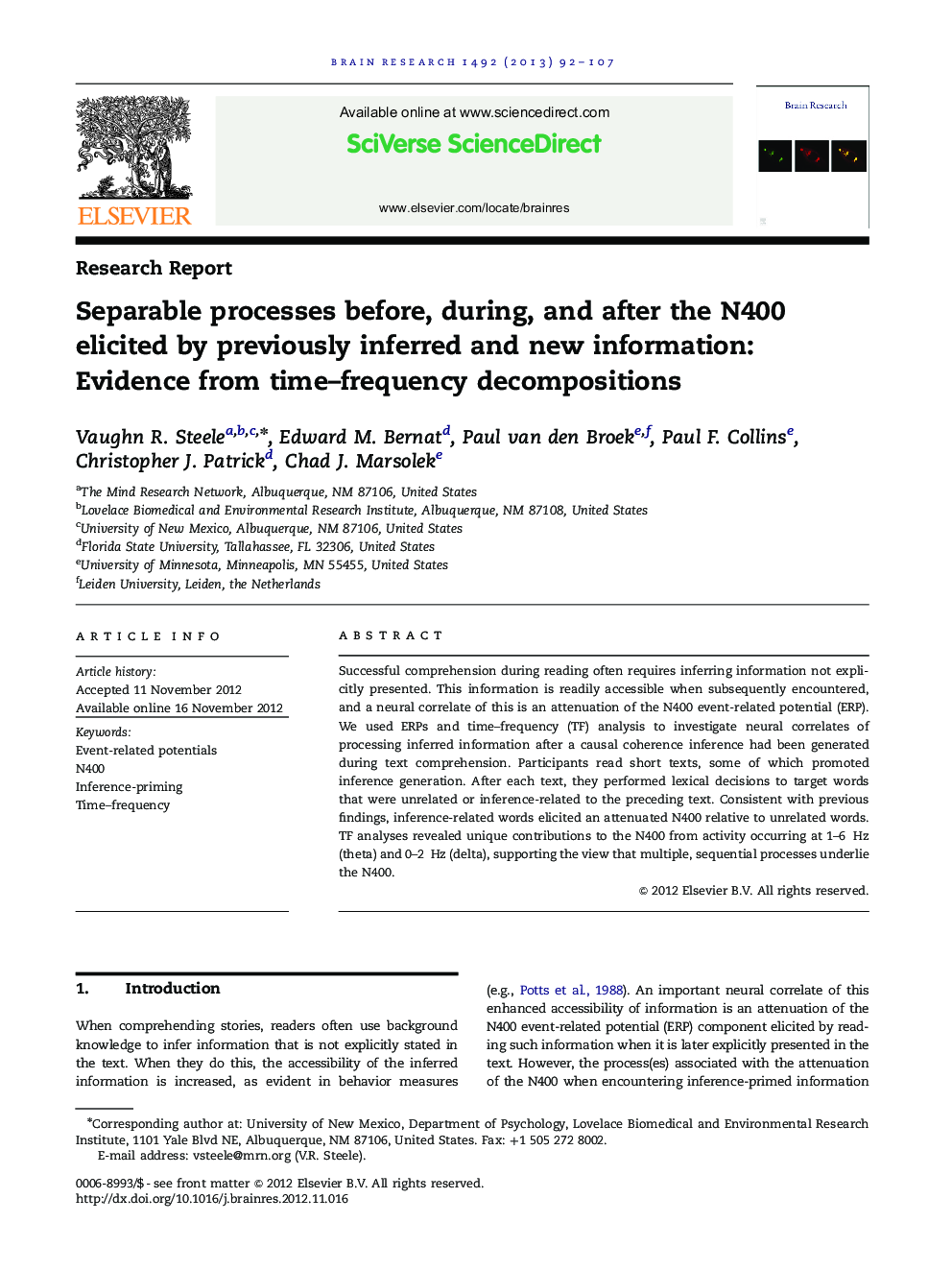| Article ID | Journal | Published Year | Pages | File Type |
|---|---|---|---|---|
| 6263988 | Brain Research | 2013 | 16 Pages |
Successful comprehension during reading often requires inferring information not explicitly presented. This information is readily accessible when subsequently encountered, and a neural correlate of this is an attenuation of the N400 event-related potential (ERP). We used ERPs and time-frequency (TF) analysis to investigate neural correlates of processing inferred information after a causal coherence inference had been generated during text comprehension. Participants read short texts, some of which promoted inference generation. After each text, they performed lexical decisions to target words that were unrelated or inference-related to the preceding text. Consistent with previous findings, inference-related words elicited an attenuated N400 relative to unrelated words. TF analyses revealed unique contributions to the N400 from activity occurring at 1-6 Â Hz (theta) and 0-2 Â Hz (delta), supporting the view that multiple, sequential processes underlie the N400.
⺠We examine processing of inference-primed information with event-related potentials. ⺠We examine dissociable processes that occur before, during, and after the N400. ⺠Time-frequency analysis identifies dissociable processes that underlie the N400. ⺠Functional differences are associated with theta and delta time-frequency activity.
